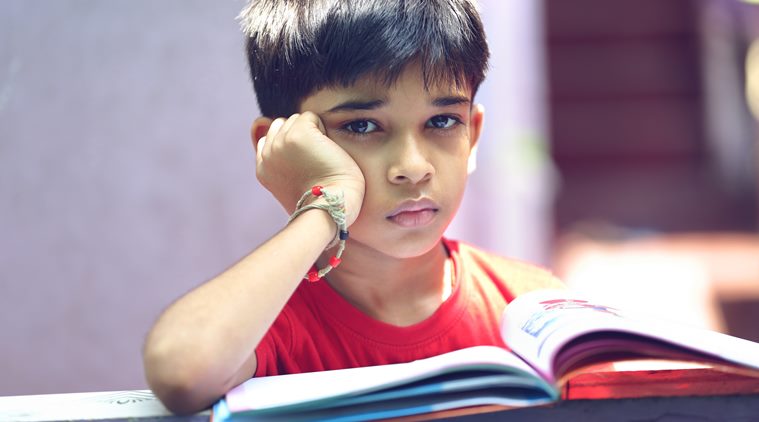It’s not just exams! Teach kids to deal with other stress as well
"Whenever a parent of a young child asks me how many extra classes their child should take, I tell them to be guided by their kids. Don’t enroll your child in various classes so you can tick off a ‘good parent’ box; be guided by your child’s interest."

By Lina Ashar
The year 2019 is here and we are slowly nearing exam time. Stress is building up in children, parents and teachers. Teachers are pressed to complete their curriculum, children feel the pressure to cope up with the full year’s curriculum and parents must make sure their children perform well.
As a parent and educator, the first thing I would emphasise here is for parents, who must remember that exams are not the measure of your child’s success and failure. You need to reinforce this in children, keeping in mind that this is not your exam, but theirs to pass. Your child will sense your anxiety and stress, so make sure you remain calm and composed. Check on them regularly and do some stress-busting activities with them.
What stress does to children:
- Recent brain research shows that when children are highly stressed, the brain literally shuts down.
- Stress causes a downshift in the brain’s ability to perform.
- Stress also creates hormonal imbalance.
A competitive environment is good and helps children perform better, but the catch here is that we need to also train our children to accept defeat, if any. They need to give their best and then be content with the result. However, if not done right, children may experience stress and anxiety, which may eventually affect their performance. Most of our education still focuses on rote learning rather than understanding and applying the concepts learnt. However, the world around us is changing. Some major companies like Google, IBM and others are no longer considering your academic scores for jobs.
We have to step away from pushing our children into an artificial race from the moment they are born. The best preschool, best birthday party, best school, best teacher and best grades. I have to keep reminding my parents of preschoolers that preschool is not a university! All of their childhood cannot be a protracted process of getting kids ready for university. Let them be children: let them be messy and work things out for themselves. And more than anything else, we have to stop viewing our children as a reflection of us, as parents.
Whenever a parent of a young child asks me how many extra classes their child should take, I tell them to be guided by their kids. Don’t enroll your child in various classes so you can tick off a ‘good parent’ box; be guided by your child’s interest. Take time to step back, breathe and participate in your child’s life in a way that develops compassion, intellectual curiosity, resourcefulness, independence, problem-solving ability, stillness and the most important the ability—learning to be alone and enjoying it.
Parents need to be more compassionate and understand their children. On most occasions, children just need a person to hear them out. One thing to keep in mind is that you need not get involved in the drama; all you need to do is hear your child out and guide them through.
- A caring adult can help children deal with stress so they have the energy to learn.
- Children are usually willing to talk about their concerns and feelings if they trust that an adult will be open, caring, and accepting.
- You can let a child know you are aware and interested in his / her well-being by saying, “You look like something is troubling you. Would you like to talk about it?”
Teach kids these techniques to manage stress
One of the tricks to manage stress is for children to learn techniques to achieve calm in moments of anxiety. I teach kids how to monitor their breathing. I tell them to keep their palms on their stomach and study how they breathe. They should be able to feel their stomach protrude when they breathe in and contract when they breathe out. By learning this, they will be able to calm their stressful energy. This technique works well for adults too.
As part of the self-development plan, we ask kids to design their life-card. This is a map that helps them to visualise a design of their life. I would start with the question, what do they want from their life? What does this mean in terms of the income they will need the relationships they need to build, the skills they need to develop? This process helps children understand that once they have a design for their future, there is a price to pay. The price is in terms of the discipline they will set for themselves. Focusing on a goal helps children work towards it with no stress.
Dealing with exam stress is temporary. We need to train children to deal with stress and anxiety in general. Once children are working towards a larger goal, exam stress will not affect them, thereby improving their performance.
(The writer is Founder, Kangaroo Kids Education Ltd.)
Source: Read Full Article


